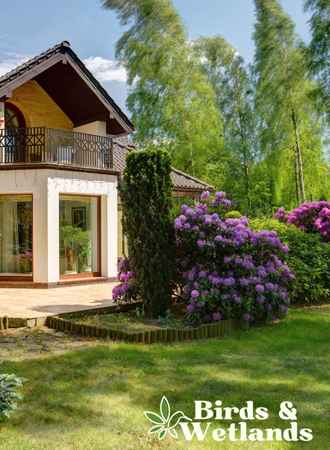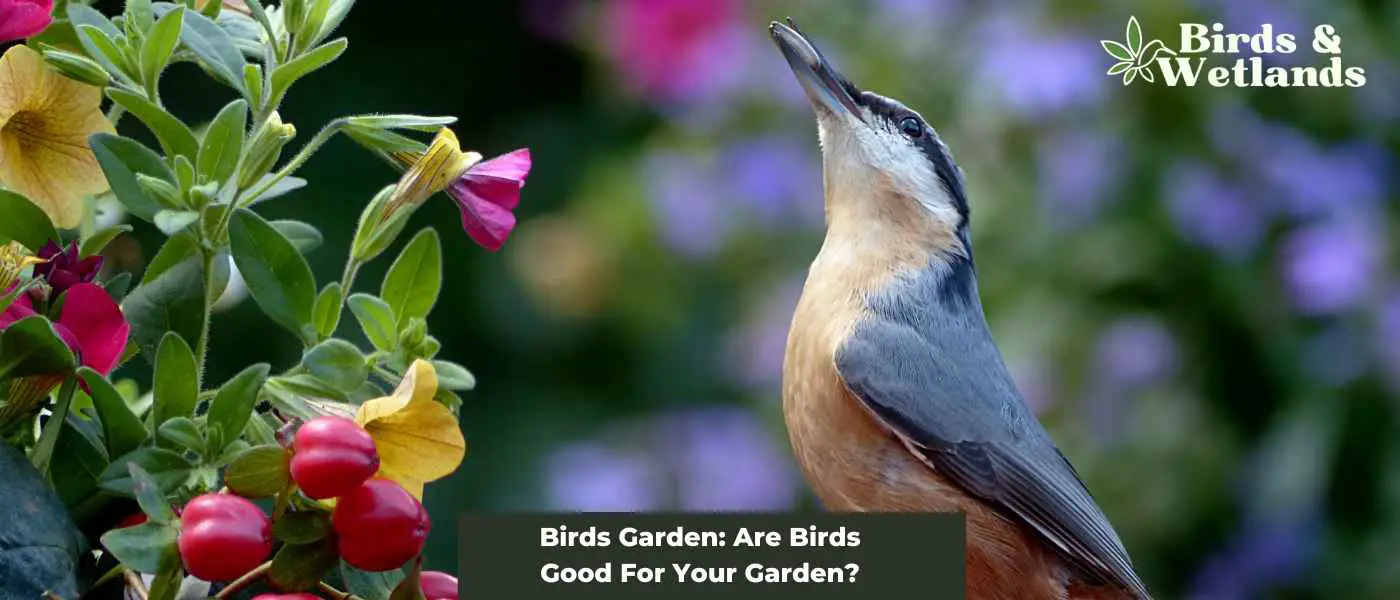Habitat loss due to human activities have devastated bird populations in North America. The U.S. Fish and Wildlife Service estimates that since the 1970s, more than one-third of bird species have experienced population declines of greater than 50%. This decline has been attributed to various causes, including the destruction of natural habitat, agricultural expansion, and the introduction of invasive species.
The question of whether wild birds are good for your garden is a complex one. While it is true that some species of birds can cause damage to garden flowers and crops, they also provide a range of benefits, from controlling insect populations to dispersing seeds and providing essential pollination services.
Ultimately, the presence of birds can be beneficial for gardens, provided the right balance of species is maintained.
Key Takeaways on Attracting Birds to Your Yard and Garden
What are the benefits of attracting birds to your yard?
Attracting birds to your yard helps preserve birds and local ecosystem. Don’t worry, there are many benefits if you attract birds to your garden or backyard.
Pest Control
Backyard birds can greatly help control the pests in a backyard or garden. Many bird species feed on insects, spiders, and other small invertebrates that can cause damage to plants.
For example, some birds, such as titmice, woodpeckers, and chickadees, will eat aphids, a common pest of garden plants. Robins and thrushes eat beetles that can damage gardens.
Birds may help keep pests from becoming too numerous. Birds are great predators, and they often hunt and eat the eggs and young of pest insects such as caterpillars, grasshoppers, and beetles.
Birds also help to control pests indirectly by eating the fruits, berries, and seeds of plants that pests would normally eat. When birds eat these items, they are less likely to become food for pests.
The mere presence of local birds can deter pests from visiting your garden. They can prevent pests, such as mice and rats, that may otherwise be attracted to a backyard or garden.

Efficient Pollinators
Pollination is a crucial stage of the plant life cycle, and it refers to the transfer of pollen grains from the male reproductive organ of a flower to the female reproductive organ. This process allows plants to produce seeds, fruits, and vegetables so that various species can be preserved in their environment.
Pollinators come in many shapes and sizes and may include different animals, such as bees, birds, moths, butterflies, beetles, and winds. These animals are attracted by flower colors or fragrances that offer nectar or pollen as a reward.
Wild birds play an important role in flower pollination because they can easily access flowers and transfer pollen from flower to flower. Birds have long, slender beaks that can reach deep into the flower and effectively remove pollen from the stamen. They also have a variety of behaviors, such as hovering and perching, that help them access different parts of the flower.
Birds can travel long distances and cover large areas, allowing them to pollinate a wide variety of plants.
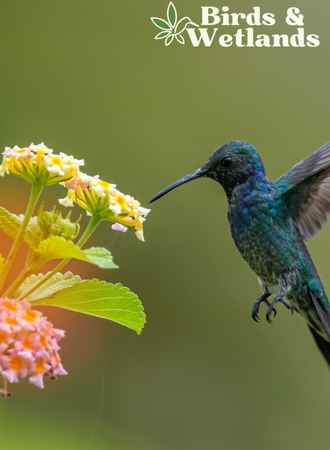
Control Unwanted Plants and Weeds
Most birds are useful for weed control, although the method is quite unconventional. One way birds help birders is by simply eating the weeds in their gardens.
In addition to being a natural form of weeding, this also provides birds with much-needed food sources. Other types of birds can help to control weed spread by dispersing weed seeds and preventing them from taking root in the surroundings.
The bird’s droppings may even contain fertilizer which can improve the soil quality and help crops thrive without relying on synthetic fertilizer.
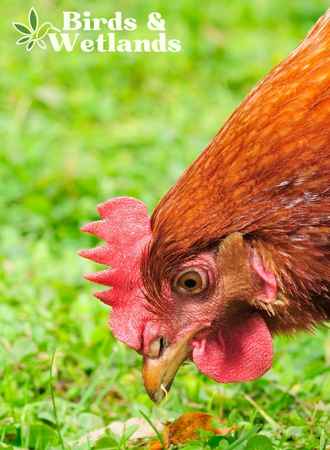
Environmental Conservation
Attracting birds to the garden is more than cheering our mornings with their singing. It is also beneficial for environmental and wildlife conservation efforts which can provide birds with a critical oasis.
Start by using native plants, small trees such as mountain ash and berry bushes adapted to the local soil, climate and habitat conditions. This means less water use for irrigation, and gardens will have better pest resistance, reducing herbicides and pesticide applications. It can also promote well-being of birds.
It requires some planning about what is suitable for the specific environment, but once set up, you can enjoy its benefits without extra maintenance.
With bird-friendly landscaping, you can contribute to preserving nature around you using environmentally conscious ways.
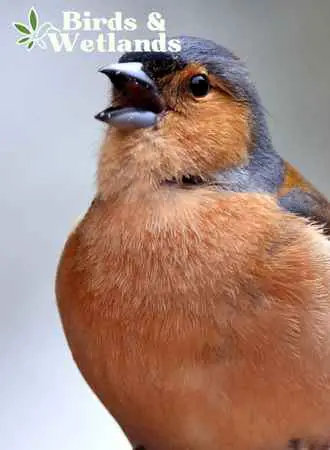
What birds to attract to your garden?
Here is a short list of bird species that are suitable for gardens and backyards full of plants and shrubs:
- Bluebird – These birds feed on insects and will help control garden pests like caterpillars and beetles. They are also a joy to watch, and their bright blue color adds a pop of color to your yard.
- Goldfinch – These birds feed on seeds and help keep your yard tidy by eating fallen and weed seeds. Plus, they’re easy to attract with a simple bird feeder filled with black oil sunflower seeds.
- Hummingbird – Hummingbirds that sip nectar are amazing pollinators and will help your plants flourish by collecting nectar from flowers such as tubular red flowers, coral bells and other plants. They’re also fascinating to watch, and their iridescent plumage adds a touch of magic to your garden.
- Titmouse – These birds are omnivores and will eat various foods, including insects, seeds, and suet. They’re curious birds that will happily visit your yard, and their energetic personalities will keep you entertained for hours.
- Robin – Robins are great at eating earthworms, grubs, and other insects that might damage your plants. They’re also great at keeping your lawn tidy by eating fallen fruit and singing a cheerful song that will brighten your day.
What are the cons or downsides of having backyard birds?
Having birds in your backyard comes with cons. Here are some of them:
Health Concerns
Attracting birds to your garden can increase the risk of spreading diseases like avian influenza, salmonella, and West Nile virus. These diseases can be transmitted to humans through contact with infected birds or their droppings.

Property Damage
Birds can cause significant damage to your property by pecking at windows and gutters, scratching at paint and siding, and digging up gardens and lawns.
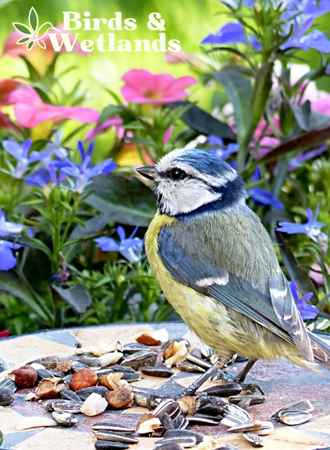
Pest Problems
While birds can help control pests like insects, they can also attract other pests like rats and squirrels that can cause damage to your garden.
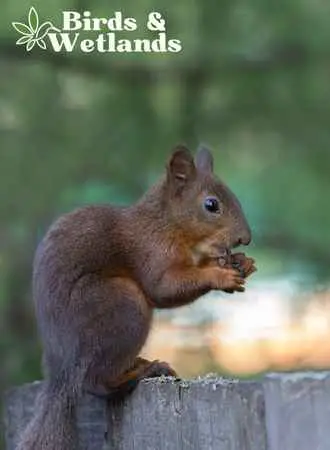
Conflicts with Neighbors
Attracting birds to your garden can lead to conflicts with neighbors, especially if the birds are noisy, messy, or cause damage to their property.

Unwanted Species
Attracting birds to your garden can also increase the population of invasive or non-native species that can displace native bird species and disrupt the ecosystem. You may inadvertently attract birds that eat smaller birds, destroy wood and leave toxic droppings.
How to attract birds to your garden?
Watching birds is one of the most rewarding activities for bird lovers and nature lovers alike. If you want to attract birds, try the following:
Bird feeding attracts birds. When setting up a bird feeder, it is important to keep it clean and stocked with food that birds will find attractive. Bird seed mixes are generally the best choice as they contain many different seeds that can attract a range of birds, including finches, doves, cardinals, chickadees and more.
Consider also adding natural food sources, suet or mealworms for insect-eating species such as woodpeckers or wrens who will find beneficial insects irresistible.
Install bird feeders filled with wild bird food in different locations around your yard at various heights to ensure plenty of space for different types of birds to feed. Be sure to place them away from low tree branches or bushes where cats can hide and prey on unsuspecting visitors.
You can also put out some food that birds can’t resist such as birdseed mixture, cakes and suet. Place only a few cakes outside to feed birds. You can make your own bird food using lard, a muffin pan, cupcake liners and wild bird food.
Bird baths are also great additions to any backyard sanctuary as they provide vital water sources for many species of birds. Ideally, the bird bath should be shallow enough so that small songbirds can access the water.
Make sure your bath is placed away from windows where birds may accidentally fly into glass panes if startled by something inside your house.
Creating an appropriate native landscaping in your backyard does not have to be difficult – simply adding native plants, fruit trees and shrubs can go a long way towards encouraging wildlife into your yard, especially during the nesting season.
The plants you grow in your backyard or garden depends on what type of birds you want to attract. For instance, if you want to attract hummingbirds, consider planting flowering tobacco which can serve as a natural food source for your feathered friends.
Put aside some extra space next time you plant trees so you can dedicate it solely as a wildlife refuge. Try mulching this area well so that insects will be attracted, which will attract insectivorous passerines in turn!
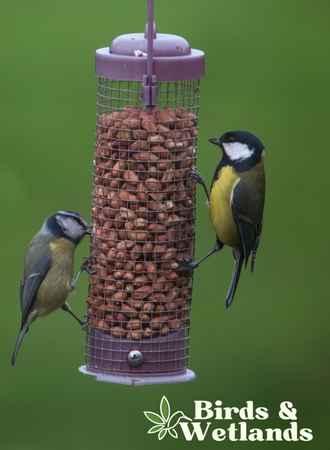
How to deter birds from taking over your garden
It can be very frustrating when birds take over the garden, but there are a few steps you can take to make them go away.
Removing any high grass or shrubs keeps your outdoor space tidy and relatively bird-free. This will deprive them of their favorite hiding spots, making it less likely for more birds to hang around.
Try using visual deterrents around your garden, like colorful flags or balloons – anything that stands out as different and is visually unappealing.
Install bird netting or chicken wire in your garden to keep birds like chickadees, northern cardinals, brown thrashers and other birds away.
You could also try using sounds to scare off birds by playing loud noises, such as a radio talk show or even an air horn multiple times a day!
These methods might only sometimes do the job, but with determination and some luck, you should be able to get rid of the avian intruders in no time.
